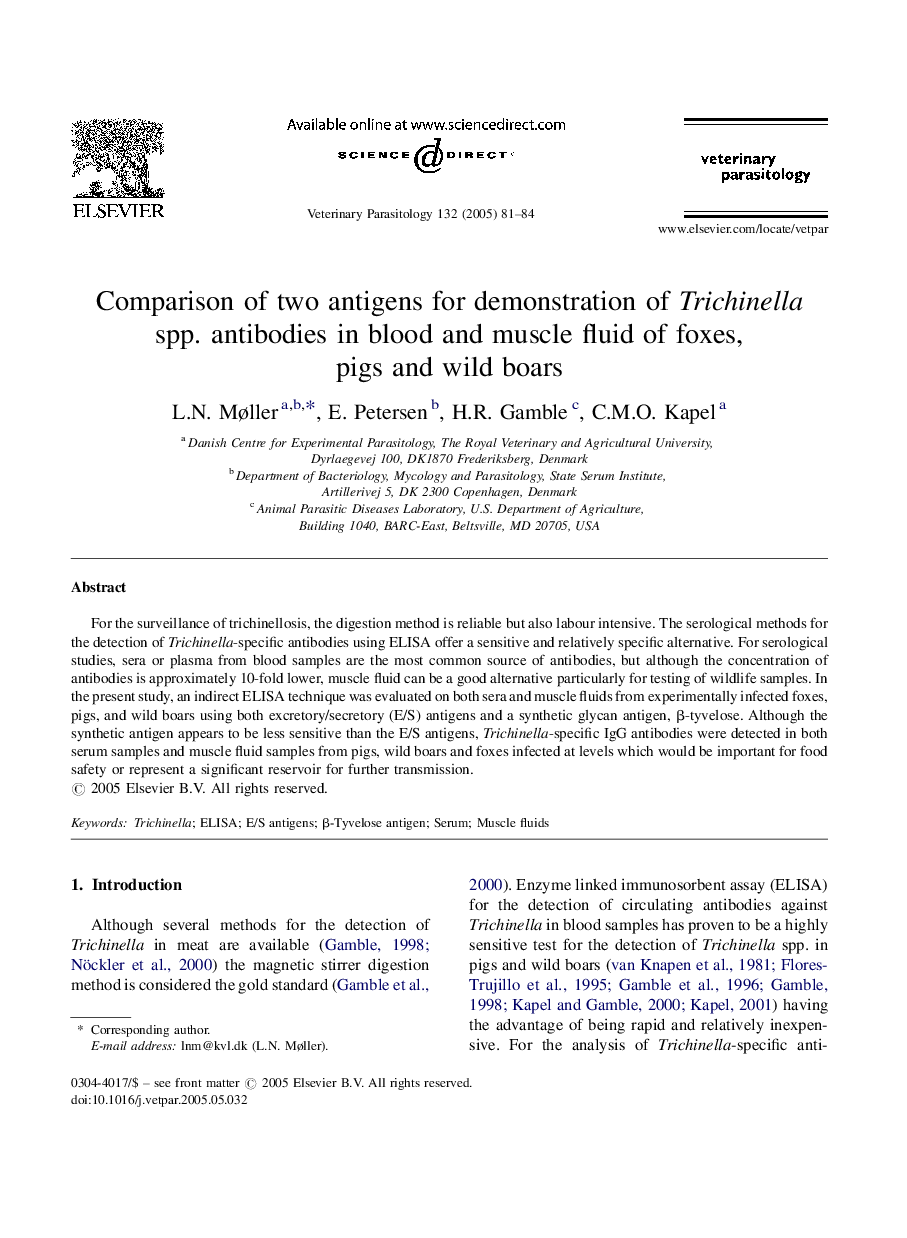| Article ID | Journal | Published Year | Pages | File Type |
|---|---|---|---|---|
| 8991021 | Veterinary Parasitology | 2005 | 4 Pages |
Abstract
For the surveillance of trichinellosis, the digestion method is reliable but also labour intensive. The serological methods for the detection of Trichinella-specific antibodies using ELISA offer a sensitive and relatively specific alternative. For serological studies, sera or plasma from blood samples are the most common source of antibodies, but although the concentration of antibodies is approximately 10-fold lower, muscle fluid can be a good alternative particularly for testing of wildlife samples. In the present study, an indirect ELISA technique was evaluated on both sera and muscle fluids from experimentally infected foxes, pigs, and wild boars using both excretory/secretory (E/S) antigens and a synthetic glycan antigen, β-tyvelose. Although the synthetic antigen appears to be less sensitive than the E/S antigens, Trichinella-specific IgG antibodies were detected in both serum samples and muscle fluid samples from pigs, wild boars and foxes infected at levels which would be important for food safety or represent a significant reservoir for further transmission.
Keywords
Related Topics
Life Sciences
Agricultural and Biological Sciences
Animal Science and Zoology
Authors
L.N. Møller, E. Petersen, H.R. Gamble, C.M.O. Kapel,
